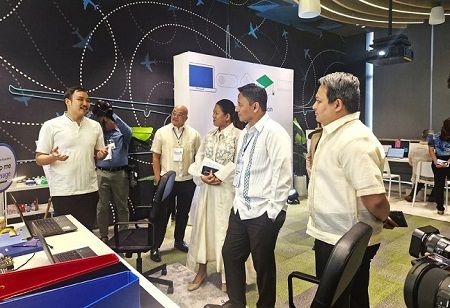In a bold move toward making education more modern in the Philippines, Google collaborated with the Department of Education (DepEd) to offer 1 million Google Workspace for Education Plus licenses, with the aim of simplifying teachers' administrative workloads and improving classroom learning across the country.
During a function, Education Assistant Secretary for ICT Marcelino Veloso said that 800,000 licenses will be awarded to teachers and 200,000 to non-teaching personnel. The tie-up also entails a free coding program for teachers, giving them with digital skills to ease processes like student monitoring and inventory management.
"These resources are life savers for teachers in the field who tend to get bogged down in administrative tasks", Veloso said. "They can now learn how to code and automate, leaving them more time to actually teach".
Google's Gemini Education add-on will further aid teachers through the use of artificial intelligence in designing lesson plans and marking assignments via an autograde facility. The system can even pick out areas where learning gaps occur, enabling educators to perfect lesson plans for enhanced student performance. School administrators and IT personnel also get to handle Chromebook devices provided to students, simplifying the process of tech uptake within the classroom.
Education Secretary Angara emphasized how the collaboration is in line with President Ferdinand Marcos Jr.'s instruction to focus on teacher welfare. Looking back at past problems, he said that the problems enumerated in the 1925 Monroe report on the nation's centralized, teacher-burdened system are still pertinent today.
"Just change the dates it's not 1925, it's 2025, and we still have the same problems", Angara said. "But hopefully, we're not those people who do not learn from history. With this alliance, we hope to change that".
He stressed DepEd's commitment to getting teachers out of repetitive, non-teaching activities. "Teachers in remote areas sleep late encoding grades by hand or spend days writing lesson plans. Technology has already solved these problems long ago. The question is: how do we roll it out quickly?"
Google for Education's Asia Pacific leader Colin Marson recognized the difficulties but was upbeat about the long-term effect of the partnership. "When you go into schools in hard-to-reach locations, you appreciate how much help teachers require. It's not a one-night solution, but each step helps".
The collaboration represents an encouraging step toward revolutionizing the Philippine educational system, enabling educators, and ensuring that technology turns into an agent of improvement and not obstruction. Google and DepEd both look forward to a long term in their association and are endeavoring to make their teachers and learners better equipped in every aspect.

